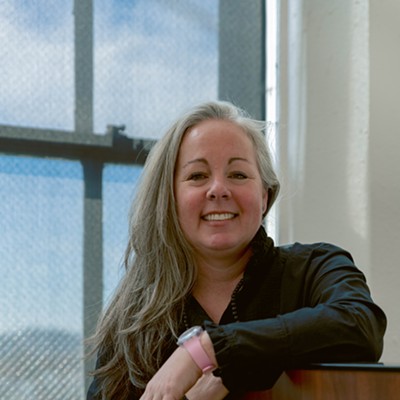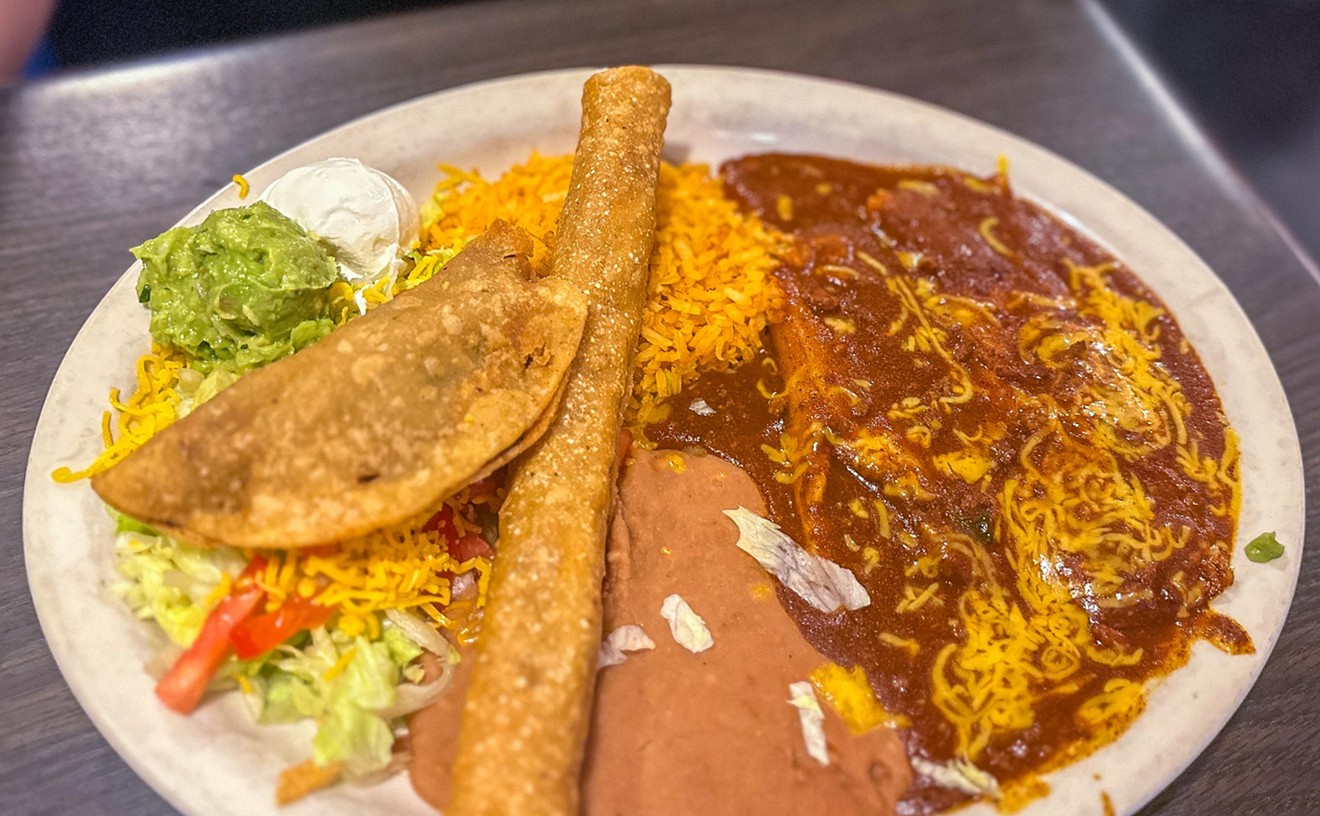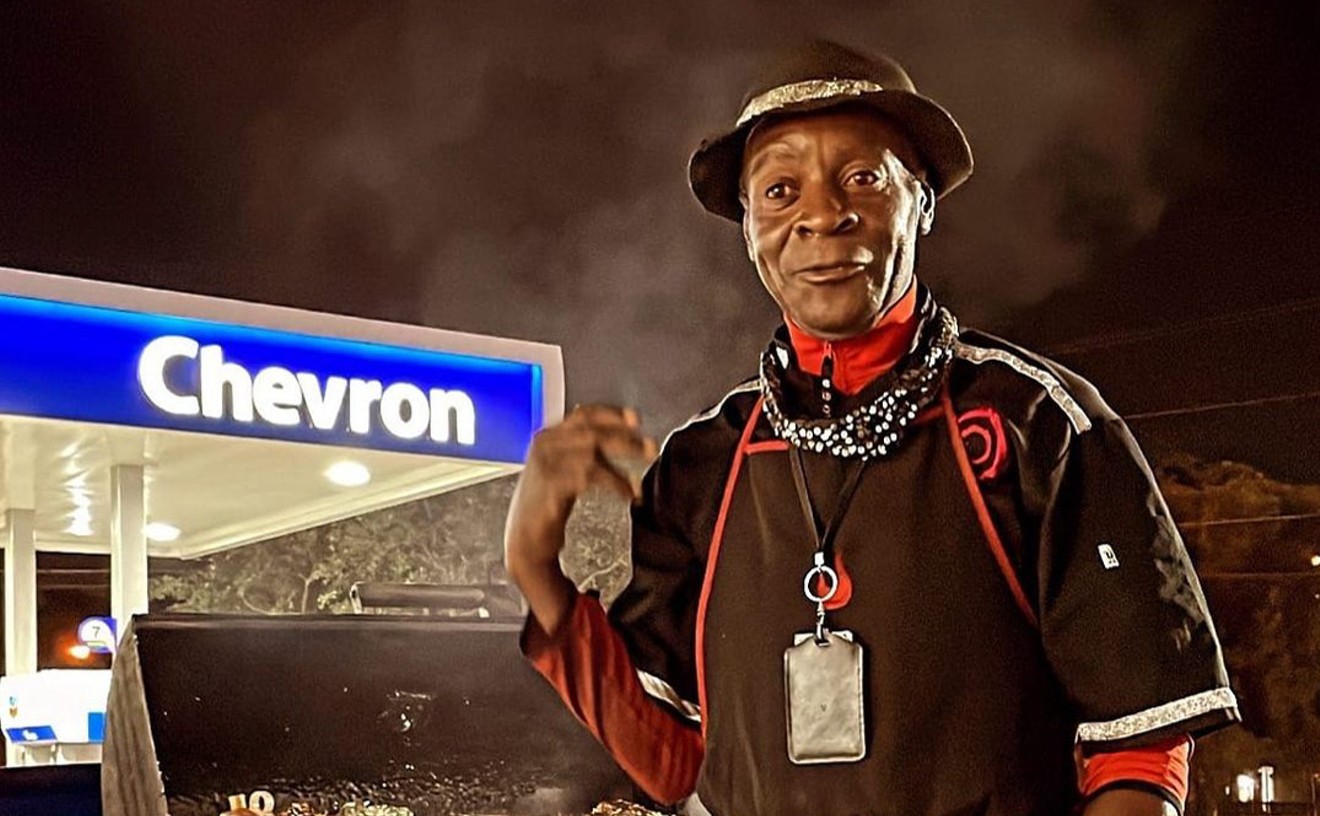Chef Ryan Carbery was raised in a family of chefs four generations deep. As a teenager, Carbery worked for his uncle David Slay of ParkAve in Orange County and his aunt Lisa, who owns restaurants in his hometown of St. Louis. After culinary school in Chicago, Carbery eventually made his way to Dallas where he was sous chef at Lazare and most recently chef de cuisine at Nosh.
I thought you were over at Nosh, so why are we meeting at Bailey's? I've been here [at Bailey's Prime Plus at Park Lane] as the executive chef for two weeks, before that I was the chef de cuisine at Nosh on Oak Lawn. I was there since the closing of Red Fork in November last year.
Why did you make the move from Nosh to Bailey's? I came over here as part of a consulting agreement between Mr. Bailey and Chef Avner. [That'd be Nosh's Avner Samuel].
What's the difference between a chef de cuisine and a sous chef? The chef de cuisine is a title given to chefs that work for companies, restaurants or hotels with different kitchens and dining rooms. As with Nosh, we have two restaurants: one on Oak Lawn and the other in Plano. Then there is Snack that has just opened on Henderson. I was the chef de cuisine of the Oak Lawn kitchen. ... The position is different from the sous chef position because as the chef de cuisine, you are in control of that restaurant/kitchen. You are responsible for the ordering, inventory, scheduling, blackboard specials and plate designs. The sous is the assistant (under chef.)
Obviously you've been brought in to change things a little. How will Bailey's be different with you as chef? Bailey's is a chef-driven restaurant with an emphasis on steak now. It's getting away from the steakhouse mentality in terms of portion sizes and just conceptualized dishes. We are sourcing as much as we can locally, and adding a little more creativity to the food and elevating the level of execution. It's a big transition though, going from a small intimate dining experience like Nosh to 260 seats here.
What are some of the challenges of sourcing locally? Consistency. That's a big thing. The seasons are wacky here. Also, there are different levels of chefs. I think most chefs try to do local as much as possible. But, a hospital chef versus a restaurant chef has different needs. I'm not looking to feed someone that needs nourishment to survive.I have people that are paying me for entertainment. I get to be creative and resourceful. When did you officially start working in the restaurant business? I apprenticed with my uncle when I was 15. Then, the days and nights I was off I worked for my aunt Lisa. I enrolled in Cordon Blue in Chicago two days after I graduated from high school, spent two years in Chicago, then went to LA.
Where did you stage in Chicago? At Spring with Shawn McClain and at Bistrot Zink on Rush Street.
Then you were off to California to work with your uncle. Is it hard working with family? My uncle is from the old guard, and he's tough. He staged in Michelin star restaurants in northern Italy and South of France. He let me work with him to give me a skill to fall back on, but I don't think he knew I'd fall in love with it like I did.
When my 16th birthday was approaching I asked if it was possible to take the day off and he said, "Why? Does someone have some cake and ice cream for you?" I worked. He really instilled the hard work ethic I have today though.
From a career perspective, what did that experience teach you? My uncle and aunt taught me how to work as a chef. They gave me the tools firsthand and showed me the dedication, passion, love, respect, discipline and commitment that it takes to become a successful chef. I learned from them that I can't ever become complacent and always have to work to find the ways to reinvent food because the market is always changing.
You speak highly of chef Avner. What did you learn from him? Chef Avner gave me the same tools; you cannot have made a life career and have been where chef Avner has been without the tools that I learned from my family. Avner has always come back swinging and has never settled for anything less than his best. People need more of that fight to them. Is the Dallas dining scene changing much? I think in some ways. Jeff Harris is a good example of a chef who is changing things. He didn't start Bolsa, but he's taken a neighborhood restaurant that's known for it's local emphasis and he's taking it to the next level where it needed to go. The menu now is great.
When you eat out, where do you go? I really like David Uygur at Lucia. There are some really good Italian restaurants, like Nonna. I also like Yutaka Sushi bar in McKinney. It's probably the cheapest trip you can take to Japan. He does some phenomenal stuff with fish. Oak is doing pretty good too. I also like Eric at Strangeways, Louie's for pizza, Jimmy's and Vietnam for pho. I also like to cook at home a lot. Pasta and wine work well together.
Is there something you'd like to see more of in Dallas? Italian food. Nonna and Lucia are good, but imagine if there were even more neighborhood restaurants like those. Can you imagine what the scene would be like if we had five of Nonnas and Lucias? There'd be some really great food -- five nights a week.
Is your ultimate goal to own your own place? Yes, definitely. I see Dallas really growing. There's a lot of potential here. It's a great thing. At the end of the day you have to deliver though. Diners here are very educated.
How are Dallas diners educated? Well, they travel a lot. They eat other chefs restaurants around the country. They're educated and worldly.
You went through some funky stuff at Red Fork. What did you learn from that? With Red Fork and Lazare it was the same thing -- anybody can own a restaurant. There are no rules saying you have to have qualifications. You see these places open and close so quickly and chefs that are working hard to give Dallas options, but they have to retreat to these bigger restaurants.
I hear you're engaged to be married. Congratulations. Any advice for those out there with their eye on a chef, despite the horrible hours? It's not easy to find someone that understands. My family a helps a lot though. One time I took my fiancé to St. Louis to see my family and some of my aunts took her out and warned her about being a restaurant widow. They have a club. They're able to explain a little better what restaurant life is really like.
What advice do have for a kid who wants to enter in the trade, but is leery of the hours? Then go work in a hospital and open boxes and throw food in a container in the microwave everyday. It's a lifestyle that not everyone can do and, honestly, not everyone is supposed to do.
Don't you get really tired though? Well, you just go until you go to sleep then get up and do it again.











